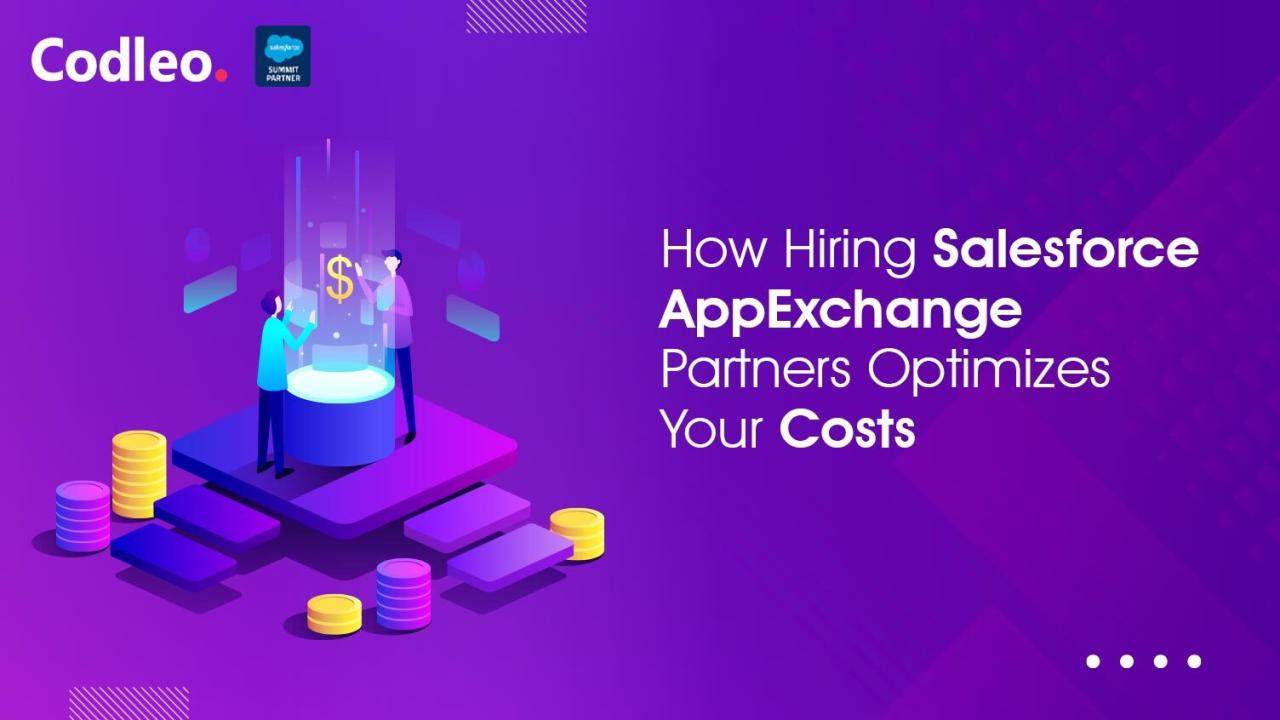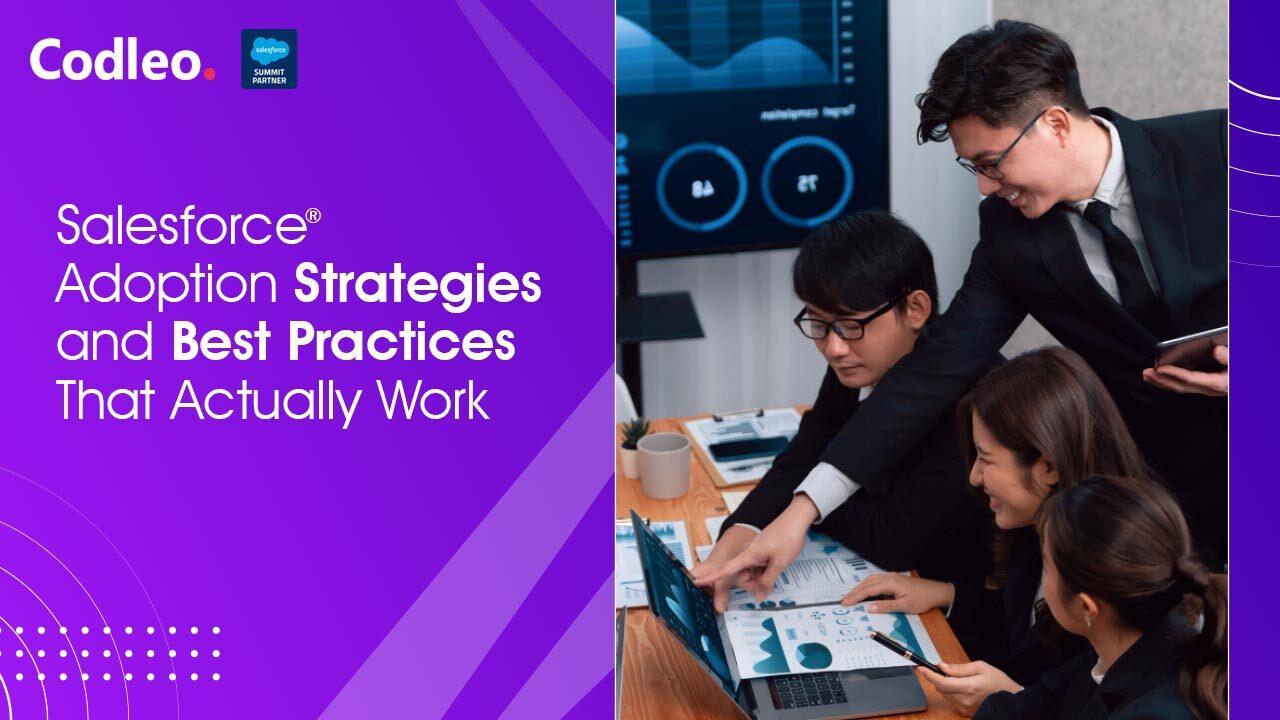Publish date:
Salesforce’s major event, Dreamforce, is happening this week (September 17th-19th, 2024). The highlight? The much-anticipated debut of “Agentforce,” which is set to take the spotlight,. With a focus on the idea that “AI is only as good as the data behind it,” Data Cloud is continuing to expand with new features.
To tackle the growing demand for AI skills, Salesforce is also partnering with key vendors that prioritize trust. This move aims to create a trusted and flexible AI ecosystem for businesses.
Agentforce Overview
Agentforce is a new tool that helps businesses create and manage autonomous agents for various tasks across different departments. Think of it as having a specialized agent for every function, like service, sales, marketing, commerce, and platforms.
Agentforce introduces several exciting features:
-
Atlas Reasoning Engine: This is the "brain" of Agentforce. It analyzes tasks, creates plans, refines them, and then takes action.
-
Agent Builder: A tool to build and customize agents using automation, APIs, and code within Salesforce. It works alongside Prompt Builder and Model Builder in what’s called Agentforce Studio.
-
Agentforce Partner Network: Salesforce has partnered with top software vendors to enhance the agent-building process, ensuring they follow ethical guidelines and share data responsibly.
Salesforce is highlighting Agentforce’s ability to deliver quick results. While traditional AI projects can take years and a large budget, Agentforce allows organizations to leverage their existing Salesforce setup to implement these agents rapidly and effectively.
At Dreamforce, a "Launch Zone" will be available for 1,000 selected customers to create their own Agentforce prototypes with help from Salesforce staff, showcasing its practical use across various industries.
Atlas Overview
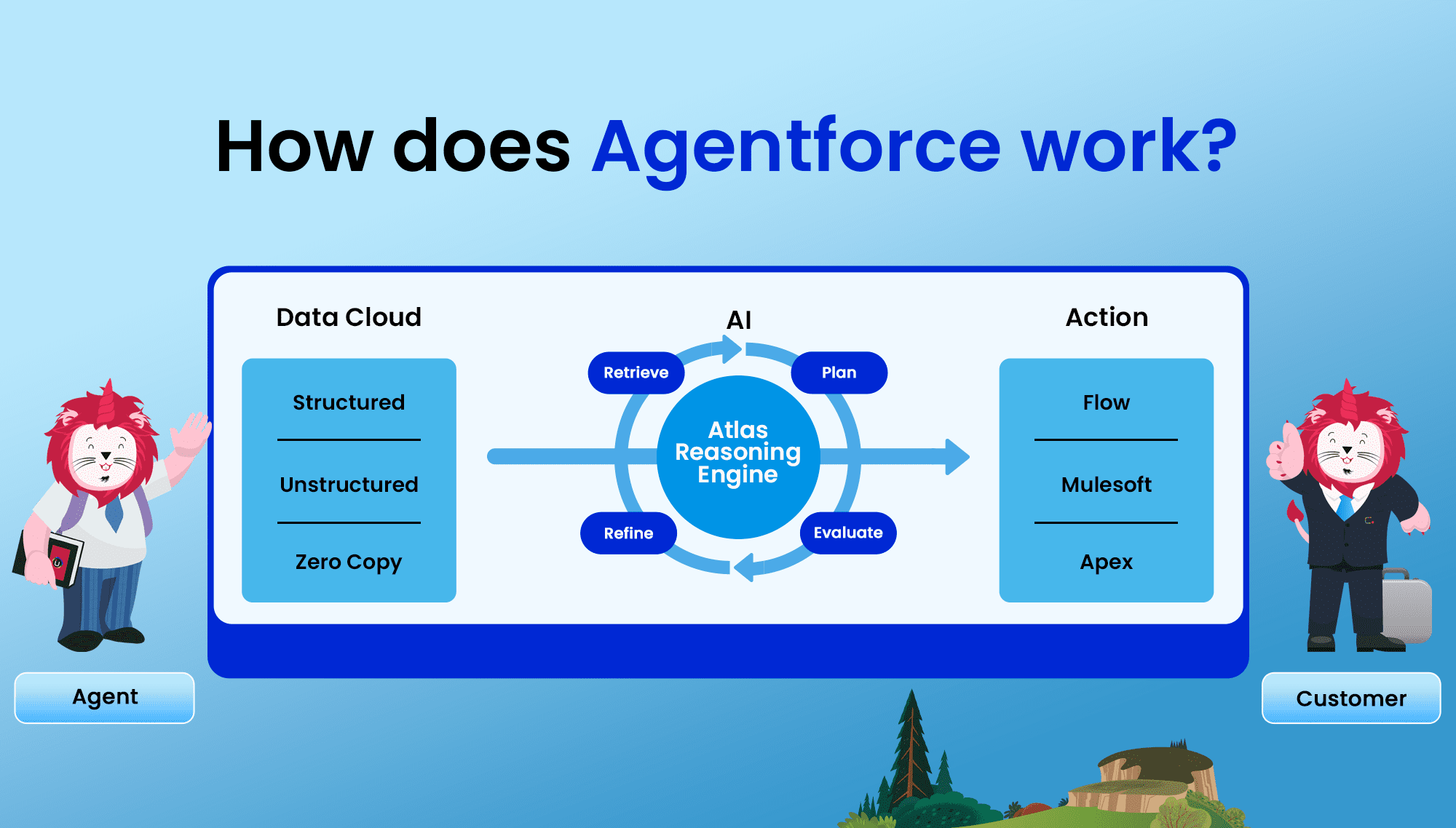
Atlas is the intelligence behind Agentforce, acting more like a decision-making system rather than just a helper. It's Salesforce’s advanced copilot engine with more control over the actions it takes for users.
Atlas creates a plan based on the specific tasks a user needs to complete, then reviews and improves that plan if necessary. If more information is needed, it can pull in additional data. Once ready, Atlas uses the right business processes (like workflows) to take action, making sure to communicate with customers or employees through their preferred channels.
Data Cloud plays a critical role in powering Atlas, ensuring that the AI's performance is only as strong as the data supporting it.
Data Cloud: New Enhancements
Data Cloud has evolved significantly over the years, moving beyond its origins as a customer data platform (CDP) for marketing, and becoming the core data foundation across all Salesforce products.
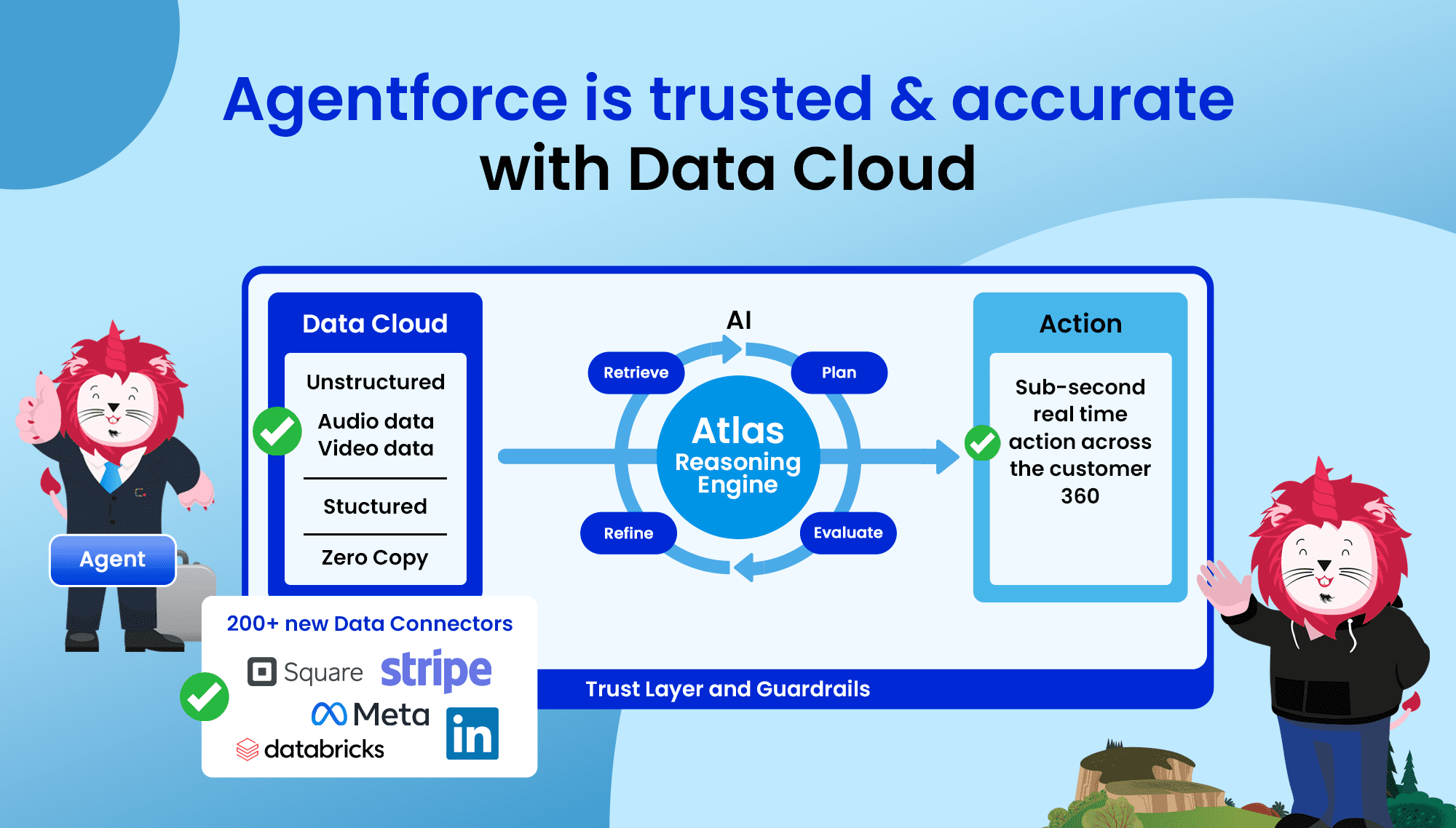
As more companies adopt Data Cloud, three new features stand out. While they may seem minor, they are crucial for meeting the growing needs for performance and scalability:
-
Support for More Unstructured Data Formats: Data Cloud can now natively process video and audio files. This means unstructured data, like sales or customer service calls, voicemails, and video demos, can be analyzed to extract useful insights. With around 90% of company data being unstructured, businesses are now able to tap into a large pool of information that traditional reports miss.
-
More Pre-built Connectors: Salesforce is adding 50 new pre-built connectors, increasing the total to over 200. These connectors simplify data integration, making it easier to connect various systems and data sources.
-
Sub-second Real-time Capabilities: Data Cloud’s ability to process and activate data in under a second is a game-changer. From data ingestion to activating processes, this speed ensures businesses can respond almost instantly to real-time events. This enhancement is critical for organizations looking for lightning-fast performance.
These improvements show how Data Cloud continues to drive better, faster data insights, helping businesses make smarter decisions in real-time.
IBM & Google Agentforce Partnerships
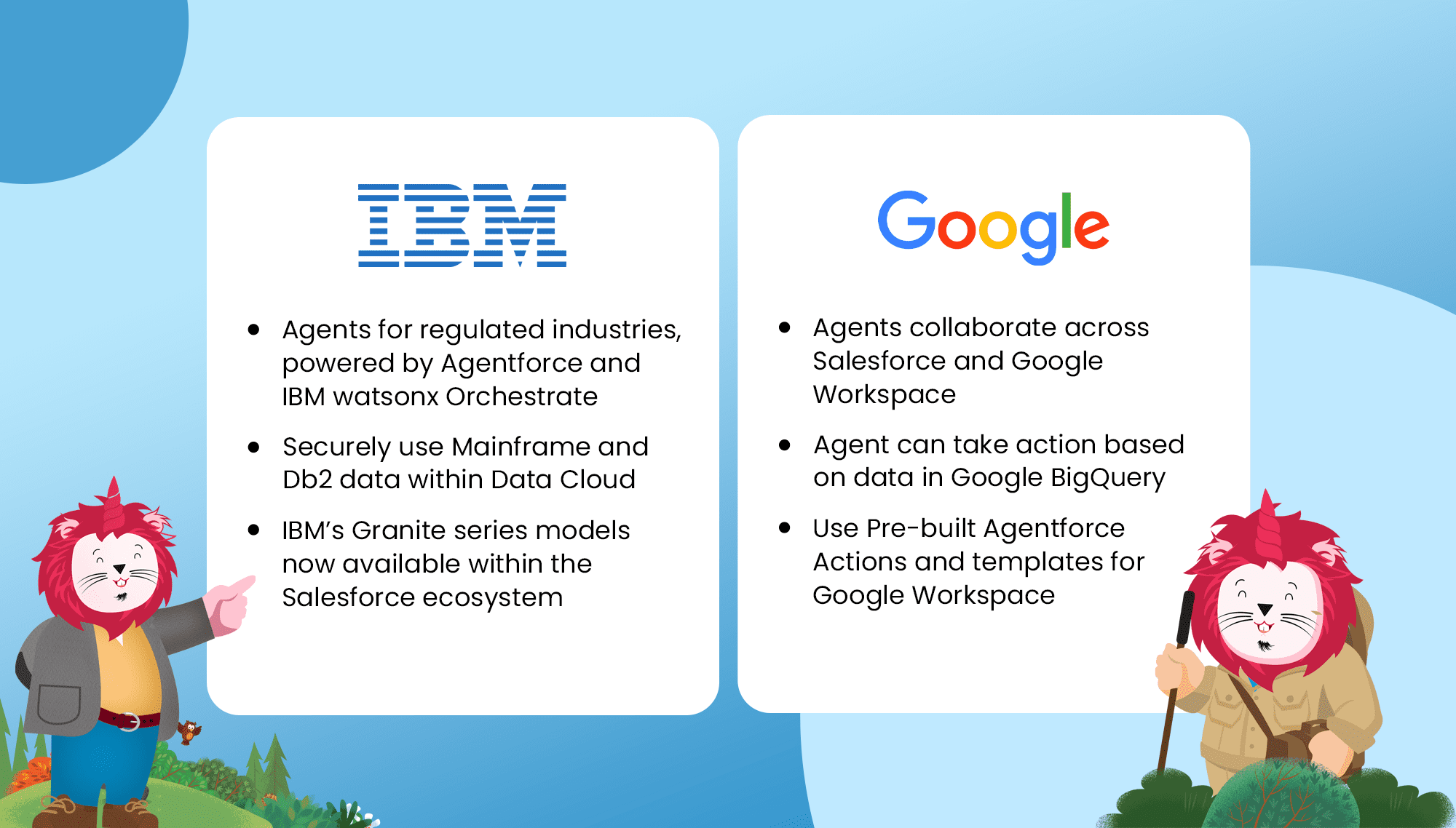
Salesforce has announced exciting new partnerships with IBM and Google, expanding Agentforce's capabilities.
-
IBM: IBM is creating specialized autonomous agents for specific industries. For example, IBM Banking Agents will help speed up loan approvals by automating credit checks, ensuring compliance with tax laws, and generating client onboarding documents.
-
Google: Google and Salesforce are collaborating to integrate Agentforce with Google Workspace applications. This will allow for automation of tasks like generating Google Docs, searching Gmail, and triggering actions based on Google Calendar events.
With these partnerships, Salesforce is shifting from disconnected systems to a more connected and interoperable network of agents.
$1B in AI Investments
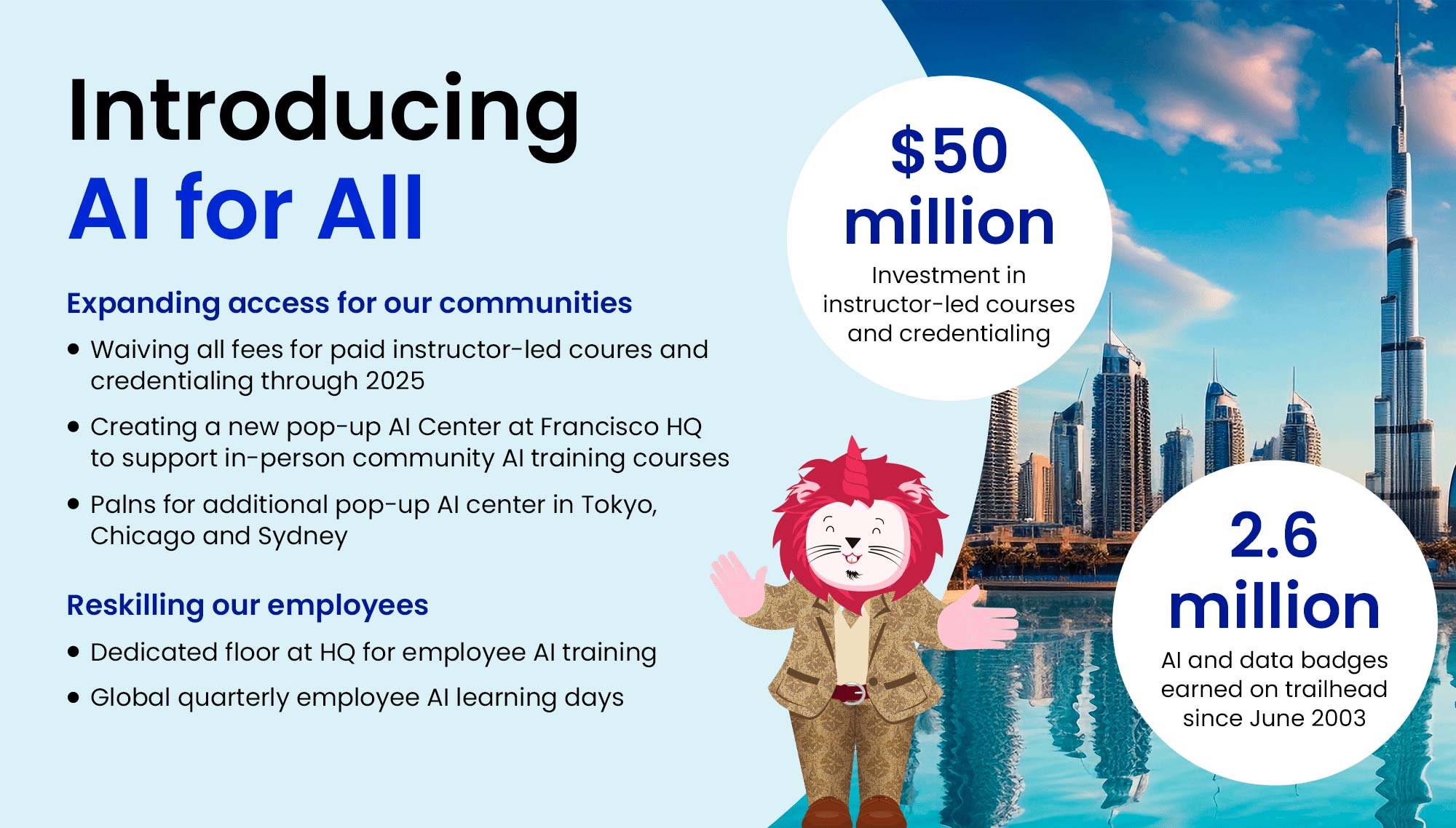
Salesforce is not holding back when it comes to investing in artificial intelligence. The company is making major moves both within its own ecosystem and beyond.
-
AI Centers: Salesforce opened its first AI Center in London and plans to expand to cities like Chicago, Tokyo, Sydney, and San Francisco. These centers will offer top-tier in-person courses, bringing together experts, partners, and customers to learn and collaborate.
-
Salesforce Ventures Investments: Salesforce is also investing $50M into AI initiatives aimed at upskilling workforces and closing the AI skills gap. Companies like Cohere, Hugging Face, and Together.ai, which share Salesforce’s focus on trust and ethics, are among the key investment targets.
Salesforce’s commitment to AI is clear, with a strong focus on empowering organizations with both cutting-edge technology and the skills to use it effectively.
Slack Innovations
Agentforce is also enhancing the capabilities of Slack, making it even more powerful for business users:
-
Agents in Slack: You can now ask questions or give instructions in plain language, and get reliable answers based on both structured CRM data and unstructured conversational data.
-
Third-party AI agents: AI agents from partners like Adobe, Anthropic, Cohere, and Perplexity can now operate within Slack, all in a secure and trusted environment.
-
Salesforce channels: A new type of Slack channel links CRM records with conversations, giving teams a unified space to collaborate on accounts and opportunities.
-
New Slack AI features: Includes tools like huddle notes, easier automation, and better search functions.
-
Slack templates: Pre-designed templates for channels, lists, canvases, and workflows that streamline operations.
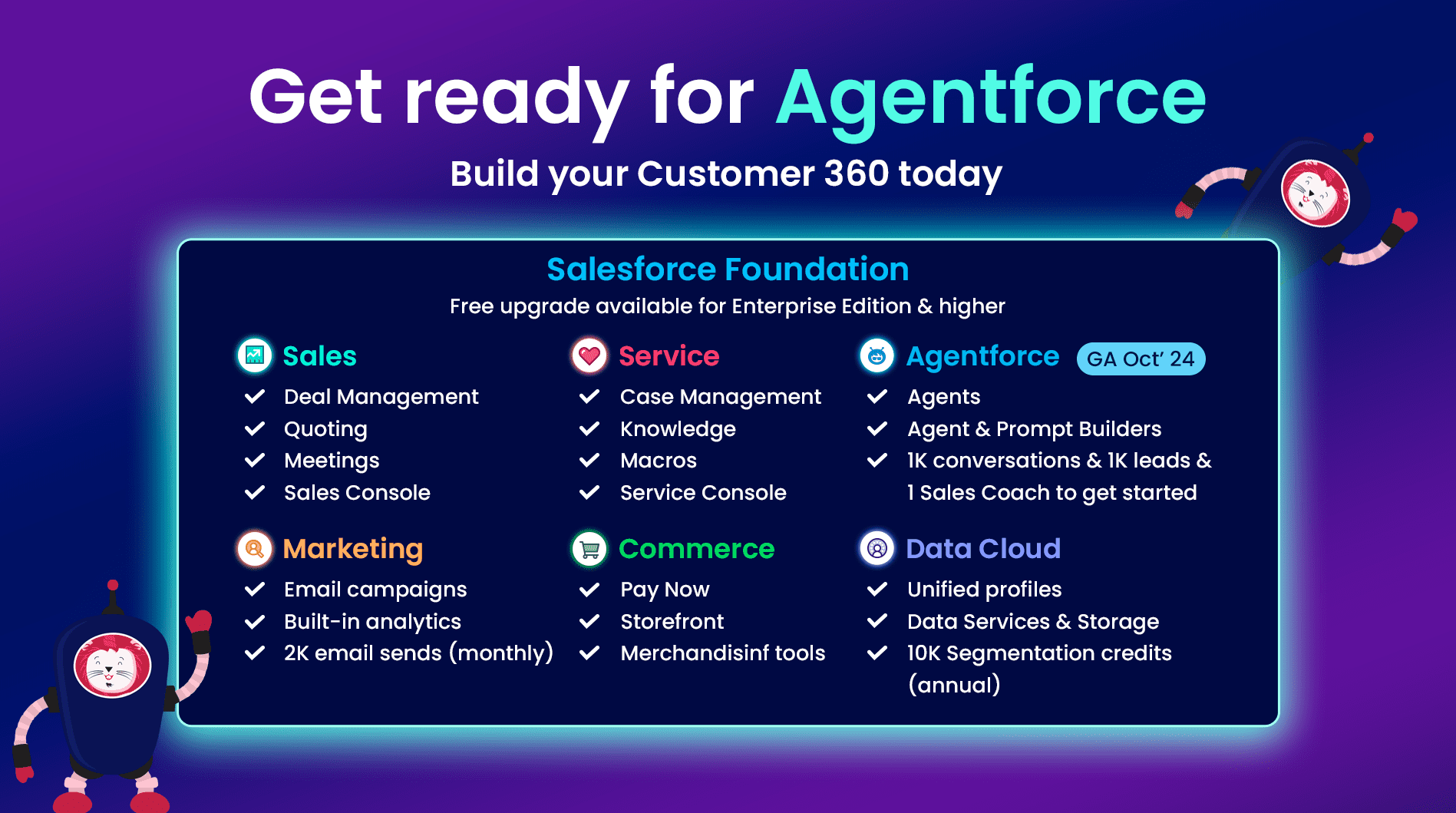
Summary
Dreamforce is packed with exciting updates, and we’re here to keep you informed with all the essential details. Which announcement caught your attention the most? Share your thoughts in the comments below!






